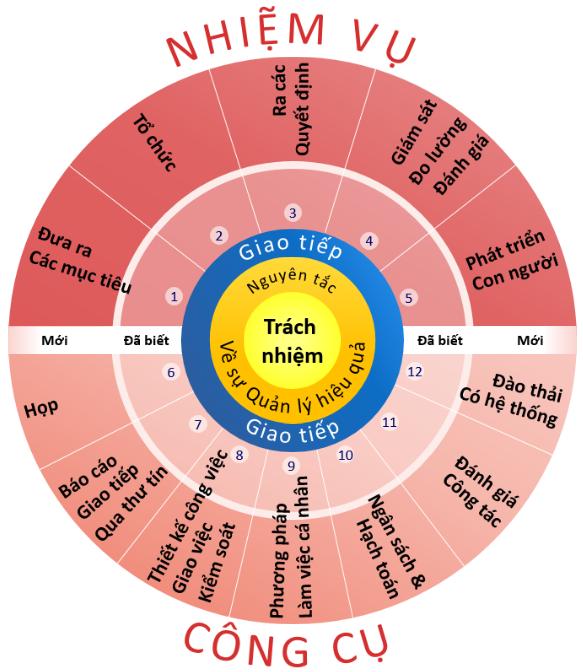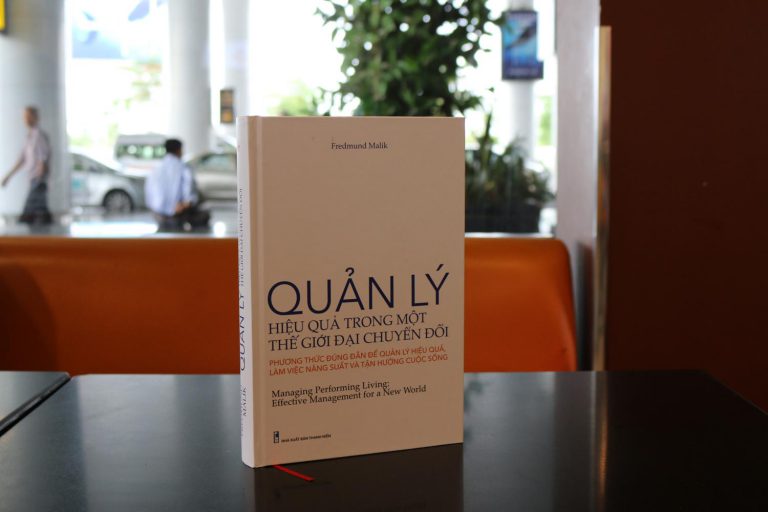
How is effective management built?
During the Great Transition, effective management was the concern for leaders. Our world has undergone a volatile transformation into the new millennium with ever-increasing complexity around the globe. Since then, the old ways of managing the simpler world have become out of date. Faced with the challenges of transformation, the world requires the ability to manage complexity and managers need to understand effective management.
According to GS. Fredmund Malik, Europe\’s most famous expert on management, leadership and governance, for a business to be effective, the question should be for leaders: Who is the effective manager? fruit? From there leaders should realize that Effective Management can learn. Here are ways to understand and build effective management:
Profession and Professionalism
We should assume that management is a basic profession that must fulfill the same requirements as any other profession. So professionalism is the focus, besides anything that can be trained for this profession.
Determine selection criteria
The criteria for selecting the elements to consider management as a profession, and above all to ensure its effectiveness are as follows: What everyone needs, anytime and anywhere, to be efficient and able What is management?
Principle Maximum – Minimum
GS. Fredmund Malik made the point of choosing the minimum number of elements to create the maximum number of applications through a combination. This helps to achieve economical learning and the fastest way to learn. Once you learn good governance, you will be able to apply it wherever you are. Its components can be configured according to the particular situation. At the same time, its model and its application can also evolve continuously.
Difference between Operational Activities and Management Activities
Operational activities must be clearly separated from managerial activities. The first is work-related, they stem from the type of organization or specific purpose and can include things like selecting personnel, marketing, or research. Management activities, by contrast, are universal and rooted in every organization\’s need for design and control. They are used to guide and control operational operations.

6 principles of effective management
- The first rule: Focus on results
The most important thing in management is results. Management is a business that aims to achieve results – through an individual and through others. Results are motivating: Working can\’t always be enjoyable – but achieving results is highly motivating.
Principle number two: Contribution to the whole
It is important in the management system to contribute to the overall. This is the basis of customer orientation. It organizes individual results and adapts them to the purpose of the organization. That is the main requirement for the behavior and initiative of businesses and organizations. Each individual is not important to the position, but towards the common goal of contributing to the whole.
The third principle: Concentration
Focus on a few, but essential, things. One of the biggest dangers to busy managers is becoming distracted. Therefore, concentration is the key to results. Things to note are: Time management, delegation, assignment, systematic removal
Fourth principle: Make use of strengths
In HR management, managers should take advantage of existing strengths. The emphasis here is on “existing” strengths, not strengths that must be sought and built. The weakness needs to be made unrelated to the assigned jobs – this is the main purpose of an organization.
The fifth principle: belief
The next principle is mutual trust. Trust creates a practical and sustainable management situation. How to create trust:
- Creating trust requires integrity
- Authenticity – basic behavior is more important than “management style”
- Listening creates belief.
Principle # 6: Positive and constructive thinking
The next important rule is positive or constructive thinking. An effective manager will look for opportunities.

Effective management stems from the science of control systems
To master the enormous complexity of the 21st Century, completely different ways of thinking and acting are required. Their foundations are made by the sciences of complexity, in particular the science of control: This is the science of the reliable functioning of extremely complex systems.
Control science is the science of efficiency, correctness and goodness in control, regulation, direction and development. Management is applied properly and effectively. The key principle for good and good management, or science of control, is as follows: Organize a complex system so that it can organize, self-regulate, self-innovate and evolve. .
In a nutshell, in order to be successful in a constantly changing business environment, leaders should understand the core principles of effective management, bravely surpass themselves, and use the right tools to manage management and sustainable business development.
Excerpted from the book “Managing effectively in a transitional world” by GS. Fredmund Malik.



